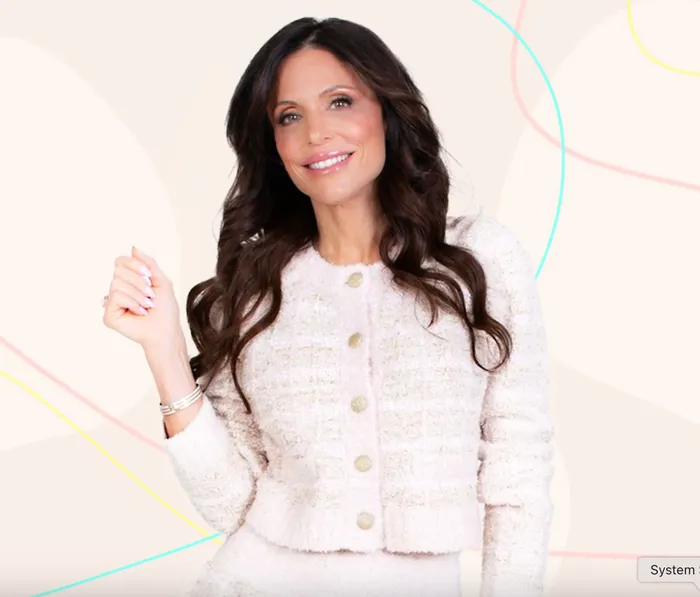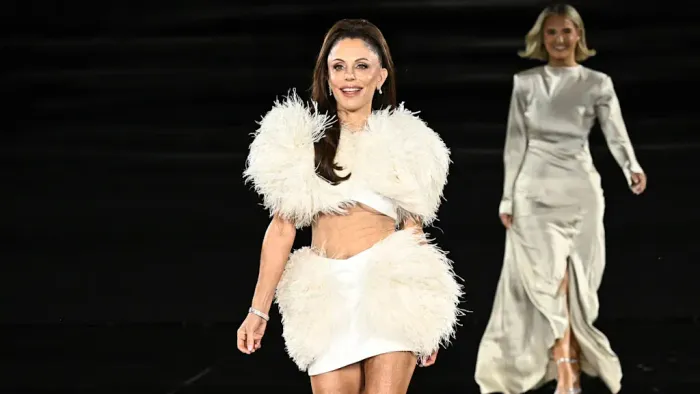
Bethenny Frankel.
Image: Emily Berman
Bethenny Frankel is a marketing maven. She’s best known for starring in the Real Housewives of New York City, and for launching the Skinnygirl lifestyle brand, starting with the now-famous “skinny girl” margarita. She then found a partner to help her manufacture the cocktail, which launched in 2009. In 2011, Frankel sold Skinnygirl for an estimated $100 million, but kept the rights to use the name. Since then, she’s launched Skinnygirl salad dressing, shapewear, and popcorn, among other items.
Frankel has 4 million-plus followers on Instagram and 3.3 million on TikTok, where she sounds off on everything from coffee to handbags. Frankel is also the queen of affiliate and brand deals—netting $7 million in 2024, a figure she’s on track to exceed this year. In May, she launched The List, where fans can shop her closet as well as her “obsessions,” which range from furniture to makeup. She’s also an investor in Cumulus Coffee, ShopMy, and several other companies.
Frankel sat down with Fast Company to talk about her career pivots—and what it means to be a marketer in today’s social-media-driven business world. She points out that consumers respond to authenticity and personal branding more than ever before, but also discusses the danger of blowback from putting your brand—and yourself—out there.
Let’s start at the beginning. You’ve said going on Real Housewives was purely a business decision. Can you tell us about that?
Well, I turned it down for a month saying I wanted to be a natural food chef. But I realized it’s not that easy to get on TV. And if this fails, no one will know about it. And if it succeeds, then it’s a great platform. I definitely did not think it was going to be a cultural phenomenon.
How did you think about riding that zeitgeist?
My instincts were just right there always. I think I’m a born marketer. When I was a little kid I used to want to be a copywriter, and came up with slogans and names for people’s businesses and stores. I just have always been a person that leads with marketing first.
I had an agent who also represented the Kardashians, and they followed suit with monetizing the Kardashians after what I did with Housewives and the Skinnygirl margarita, which no one had ever done before. No one had monetized reality TV.
Now the audience is turned off by that. Everybody’s followed in my footsteps, and everything is a photo shoot and a book cover and a launch party and a fashion line that may or may not really exist. Versus on Housewives, it was me being flawed and using that platform to go through the struggles and possibilities of building a business, whether or not it would look negative or positive to the audience. It was just a true experience that I was going through.
What marketing advice do you have based on that experience?
The actual lesson was that people weren’t buying the product that I was selling. They were buying the authenticity of me.
They believed that I was being truthful about all areas of my life, so then they believed in what I was doing. And I think that’s where everybody’s lost their way, because everybody’s just trying to sell something to make a quick buck in the short term, but the audience is extremely savvy. While you may make money on a brand deal right now, in the long run they probably won’t trust you if you’re not telling the truth.
And that’s what’s key in social media, which is the new television.
How do you draw boundaries between your personal life and your professional life?
Attention is the new oil. I’m so grateful and so fortunate and so humbled by the fact that I have the attention of the people. There’s a handful of people in the world right now who have the attention of the people, because even in the last year, I’ve watched it change. Everyone’s desperate because there are more people in the store. So how do you get people to come up to your counter?
It is very manic and it probably really affects people’s mental health. So how do I deal with that? I don’t have to do any of this. And I think that’s what really separates me from the influencers and the content creator landscape. I wasn’t broke when I accidentally started doing this stuff and it was doing well. I was just sort of lonely. I was emotionally broke, I was sort of bored, with low-grade depression. I was at home screwing around. I found a real home in this medium.

.
Image: Julien De Rosa/AFP via Getty Images
You mentioned authenticity is your superpower for engaging with people. What happens when there’s backlash because you’re putting your authentic self out there?
It’s such a trap because they want me to comment, because I opine. I never rate higher than when I’m commenting. But then if you comment, people always want to know what you’re thinking. Everyone was mad at me because I wasn’t posting about Charlie Kirk.
I had never heard of Charlie Kirk in my entire life, until the mob was mad at me for not posting thoughts and prayers. A couple of hours later, I said to everyone, “Sit the fuck down. I’d like to get educated. Sorry if you think I’m dumb, I can’t know what I don’t know.” The thing is I don’t get to have the fluffy buffer of just doing a TikTok dance and people wanting that. People want my opinion. I am in the impact zone often, but that’s okay.
This article has been edited...if you would like to read the entire interview with Frankel click here!
ABOUT THE AUTHOR
Shalene Gupta is the staff editor for Fast Company's Work Life section. She reviews contributor essays for Work Life and writes about the way we work now and how this will change in the future
